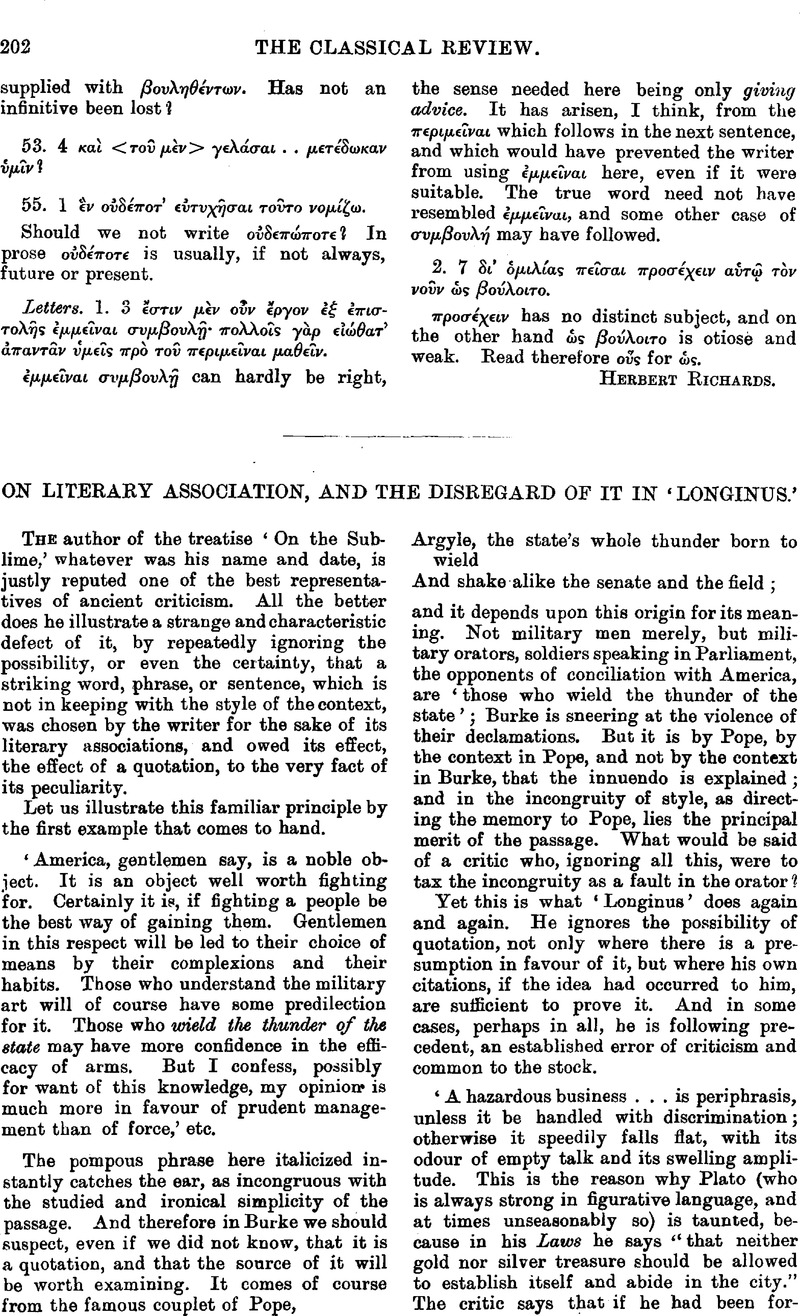No CrossRef data available.
Published online by Cambridge University Press: 27 October 2009

page 203 note 1 Long. xxix. 1 (Plato, Laws 801 B). Transl. of Rhys Roberts, slightly modified in the last clause.
page 203 note 2 Baiter-Orelli-Winckelmann give ⋯νοικεῖν (for ⋯ννοἰκεῖν): ⋯νοικεῖν may be right, but the omission of ⋯⋯ν is demonstrably wrong.
page 203 note 3 Aristoph, . Plutus 1191, cited by Prof. Rhys Roberts, alludes doubtless to the same passage of tragedy, and proves it notorious.Google Scholar
page 203 note 4 iv.
page 203 note 5 Rep. Lac. iii. 5.
page 203 note 6 iv. 6 (Rhys Roberts), Laws 741 c.
page 204 note 1 Long. ib. 7, Herod, v. 18.
page 204 note 2 Herod, ix. 16. See Classical Review, vol. xvii. p. 98.
page 204 note 3 Long. ib. 6, Laws 778 D (⋯πανιτ⋯ναι Baiter).
page 204 note 4 Long. v. 1 (Rhys Roberts).
page 204 note 5 Thucyd. i. 90.
page 204 note 6 Of the two that remain, one, the ominous significance of the name Hermocrates (iv. 3), cannot possibly have been a legitimate example. Whether Timaeus defended the superstition or derided it (we do not know), in neither case did he commit an offence of style. The comparison of Alexander and Isocrates (iv. 2) may have been a proper illustration, but without seeing the text we cannot say.